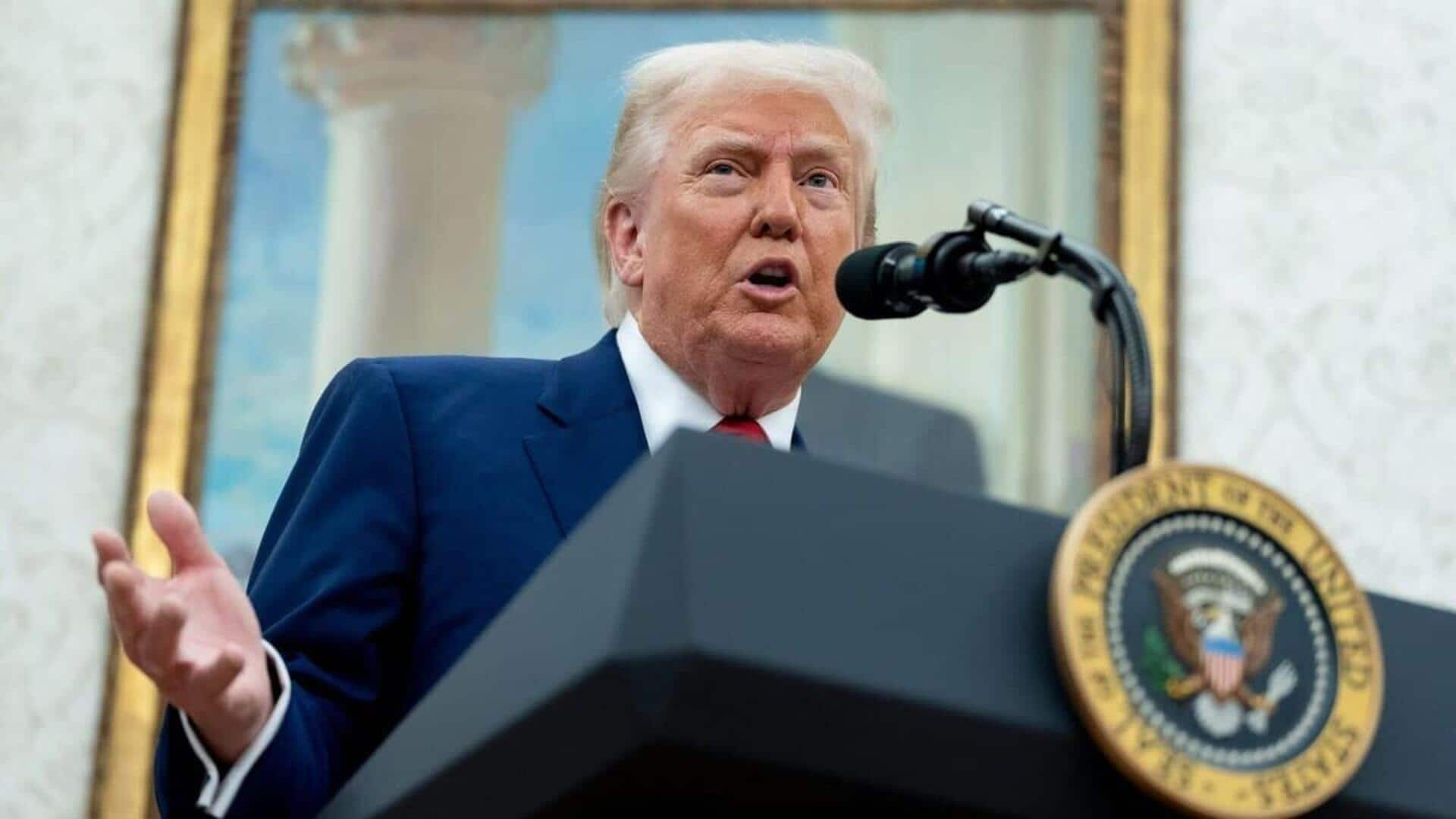
Trump bans citizens of 12 countries from entering US
What's the story
United States President Donald Trump has announced a travel ban on nationals from 12 countries and imposed restrictions on seven others, citing national security risks. The list of banned countries includes Afghanistan, Chad, the Republic of the Congo, Equatorial Guinea, Eritrea, Haiti, Iran, Libya, Myanmar (Burma), Somalia, Sudan, and Yemen. The seven countries facing partial restrictions are Burundi, Cuba, Laos, Sierra Leone, Togo, Turkmenistan, and Venezuela.
Implementation date
Travel ban to take effect on June 9, 2025
The travel ban will come into effect on Monday. However, visas issued before this date will not be revoked. The restriction also exempts lawful permanent residents, particular visa categories, and people determined by the government to serve US national interests. President Trump stated that Secretary of State Marco Rubio conducted a security analysis of "high-risk regions" and gave recommendations on which countries should be subject to new restrictions.
Security justification
'Millions of illegals should not be in our country'
The decision comes after a recent attack on a pro-Israel rally in Boulder, Colorado, which President Trump said highlighted the dangers posed by unvetted foreign nationals. In a video message, Trump said there are "millions...of these illegals who should not be in our country." "We will not let what happened in Europe happen to America." According to the Department of Homeland Security, Mohamed Soliman, an Egyptian national, entered the US in 2022 on a non-immigrant visa that expired in 2023.
2017
Soliman's family in ICE custody
After the Boulder incident, the Trump administration moved quickly to try to deport Soliman's family, but a federal judge temporarily blocked the efforts. The family, including his wife and five children, was taken into Immigration and Customs Enforcement custody on Tuesday. During his first term in 2017, Trump had also issued an executive order banning citizens of seven predominantly Muslim nations: Iran, Iraq, Libya, Somalia, Sudan, Syria, and Yemen.
University scrutiny
Order to revoke existing academic or exchange visas
Then, on the first day of his second term, Trump signed an order that authorized agencies to identify nations where verifying visitors and visa applicants is deemed infeasible and poses a threat to national security. Along with the order banning citizens from 12 countries, the president also signed a proclamation suspending visas for foreign nationals seeking to study or participate in programs at Harvard University for an initial six months. The suspension can be extended.
Order
Yet another illegal retaliatory step: Harvard
The order directs the US State Department to consider revoking existing academic or exchange visas of current Harvard students who meet "the Proclamation's criteria." It added that the State Department would review existing foreign students to see whether their visas should be revoked. In a statement late Wednesday, Harvard said it will "continue to protect its international students." "This is yet another illegal retaliatory step taken by the Administration in violation of Harvard's First Amendment rights," university officials said.